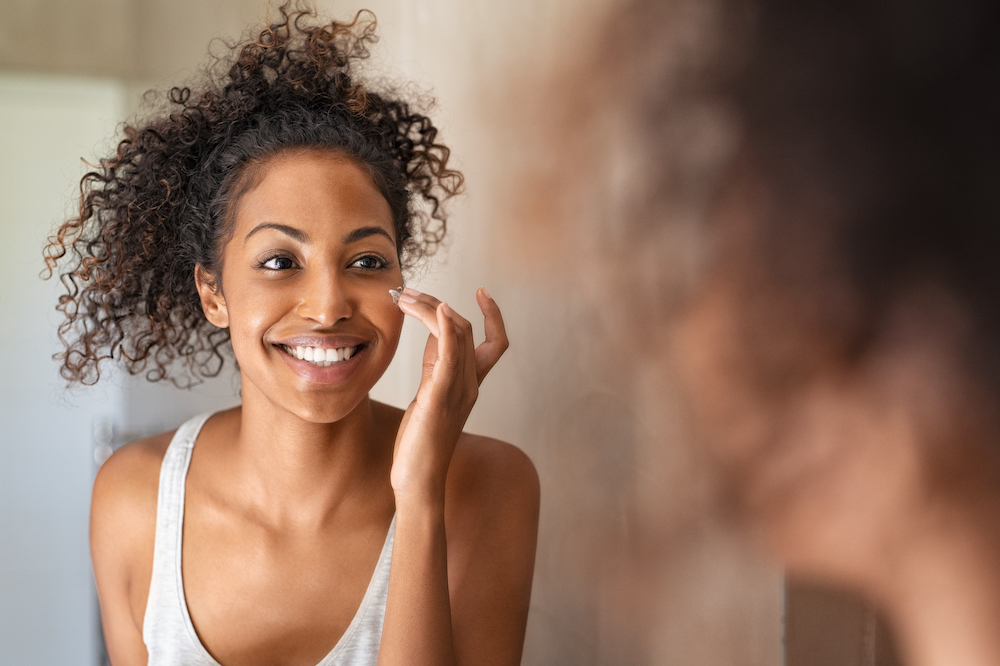5 Myths About Acne

When you are dealing with breakouts, you want information to help you treat and get rid of the problem. For many people, that means getting on the Internet to do some research about acne, its causes and the most effective treatments. And while there is no shortage of information available online, there is still a problem. There is so much conflicting information that it can be impossible to know what’s true and what’s false.
In addition to Internet research, we are constantly bombarded with advertisements for medications and products that promise to cure acne and get rid of breakouts for good. This is one of the many reasons why people who suffer with acne tend to spend hundreds and even thousands of dollars on products, treatments and medications that don’t work, only adding to their frustration and hopelessness.
Having the right information is the first step to starting a successful treatment plan. In this article, we will share some of the most common myths about acne and set the record straight. If you have more questions about your breakouts, contact your dermatologist. Your doctor will help you better understand your unique skin and assist you in understanding the underlying cause of your breakouts.
5 Common Myths About Acne
Acne is caused by dirty skin.
Many people who have severe acne breakouts have heard the line, “Have you tried washing your face more?” The myth is that acne pimples are a result of dirty skin. In reality, we all have the acne-causing bacteria already on our skin. Cleansing your skin will remove some of the bacteria, oils and dead skin cells, but too much washing can actually make the condition worse. When you wash your skin too much, you are stripping the oils from the surface. In response, your skin will produce more oil which can create conditions perfect for clogging pores.
Instead of over washing or not washing enough, aim to wash your face twice a day in the morning and evening. Avoid harsh cleansers and exfoliants and intense scrubbing, all of which can aggravate your pores and cause inflammation.
You can clear your acne by suntanning.
Another common myth is that the sun can clear pimples. While a tan may temporarily conceal a pimple, exposure to the sun will not clear your acne. A sunburn can cause inflammation and damage the surface layers of your skin. Always wear a sunscreen that is noncomedogenic. Try to avoid exposure on your face by wearing a wide-brimmed hat. Also, take note of the side effects of any medications you are taking, some of which can cause reactions to too much sun exposure.
Acne is a skin condition for teens.
Many people mistakenly believe that breakouts only happen in teenagers and young adults. The reality is that anyone can get acne. In fact, adult acne is extremely common, with many people in their 30s and 40s still dealing with acne breakouts. Hormonal acne in women is also very common and can appear well into adulthood.
Acne is more prevalent in teenagers because of hormonal changes due to puberty. Oil production is increased during this time, creating conditions that can result in clogged pores. Clogged pores are future pimples. Teenagers should seek treatment for their acne. The sooner they learn healthy skin habits, the better.
Fast food causes acne.
Another common myth is that certain foods cause acne. Many people believe that eating fast food will cause pimples. Fast food and other junk food do not inherently cause pimples. However, poor eating habits can have a negative effect on your overall health and the appearance of your skin. Unhealthy foods that are high in starch can boost the production of oil. When the oil mixes with dead skin cells and bacteria on your skin, it can result in a clogged pore which will become a pimple.
While certain foods may not be directly linked to acne, eating a well-balanced and healthy diet will ensure that your body is getting the nutrients it needs to run most efficiently. Overdoing it on fast food, sweets and other junk foods do not support healthy body function and therefore should be avoided.
You can cure acne.
Finally, acne is considered a chronic condition which means that there is no specific cure for the problem. Some people are more prone to acne than others. They may experience bouts of acne throughout their lives, from mild to moderate breakouts to severe cystic acne. Unfortunately, there is no one medication to take or product to use that will clear your acne for good.
With the help of your dermatologist, you can learn how to manage your acne. It can take time and trial and error to see what combination of products, treatments and medications work best for your unique skin. However, have hope that you can control the condition. The combination of treatments from your dermatologist paired with leading a healthy lifestyle, can give you the clear skin you desire.
Acne Dermatologist Atlanta
If you are frustrated with your acne-prone skin, contact the office of Buckhead Dermatology today. Dr. Straughn has extensive experience in treating acne in patients of all skin tones. Call our Atlanta or College Park office today to schedule your appointment and get on the road to clear and happy skin.
